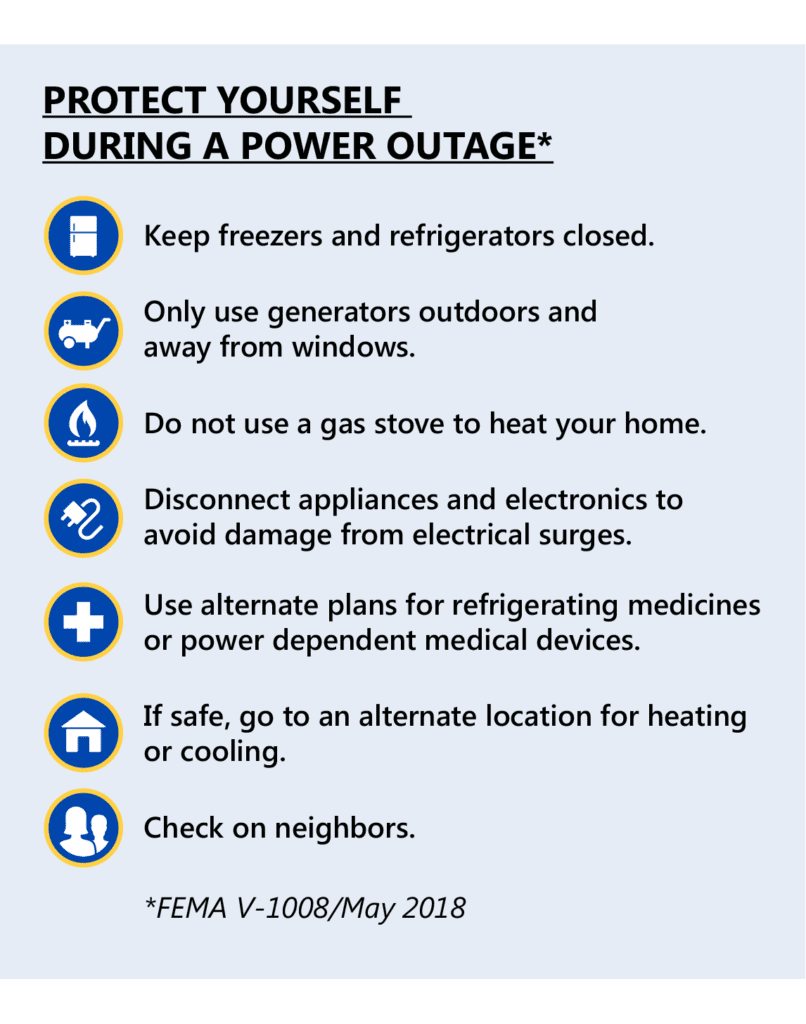
Prepare for a Windstorm | Prepare for Snow and Ice
A power outage begins as an inconvenience but can quickly evolve into a large-scale event in a matter of minutes. A little preparation today can go a long way to keep you and your family safe and comfortable tomorrow.
Three Ways to Prepare
Have a Kit Ready
Make a pack that will last for at least seven days. For tips on what you need, visit seattle.gov/emergency-management/prepare/prepare-yourself.
Have a Plan
Know how to contact your loved ones and decide on a meeting point. Have a list of contacts that is easily accessible. Identify an individual who lives out of the area who can act as your point of contact.
Carry Cash
Credit card machines or ATMs may not work in an outage. Having physical currency will ensure that you can purchase in a pinch.

Power Outage: Before, During and After
Before an Outage
Have a first-aid kit and enough water, nonperishable food, flashlights and blankets for every household member. Pets included!
Do you use medical devices and/or refrigerated medicines? Talk to your medical provider and develop a plan on how to take care of these needs during an outage. For more information, visit https://www.seattle.gov/city-light/outages/outage-safety/life-support-equipment.
Keep batteries and alternative power sources nearby.
Place an appliance thermometer in the refrigerator and freezer. Determine if food is safe for consumption based on its temperature: Refrigerator <40°F; Freezer <0°F.
Install carbon monoxide detectors in your home; have battery backups. Keep cell phones and electronics charged and gas tanks full.
Have a landline? Determine if it’s able to function without electricity. If so, know how long it can last and have enough battery backup to sustain an outage.
Subscribe to local alerts. Track weather reports. Follow local authorities on social media channels for frequent updates.
During an Outage
Generators, camp stoves and barbecue grills are dangerous if used inside the home. Avoid carbon monoxide poisoning by keeping them outdoors and at least 20 feet away from windows.
Keep your refrigerator and freezer closed to preserve items for up to 48 hours.
Power surges can cause damage to your appliances, equipment or electronics when power is restored. Be sure to disconnect your items during the outage.
When Power is Restored
Food exposed to temperatures of >40°F for at least two hours or more, can be unsafe. When in doubt, throw it out!
Discard any refrigerated medication that requires refrigeration for more than a day unless the directions read otherwise. Consult a doctor or pharmacist for specific instructions

Translations (available soon):
中文翻译 | Tiếng Việt | Español | Tagalog | 한국어 번역 | Af Soomali